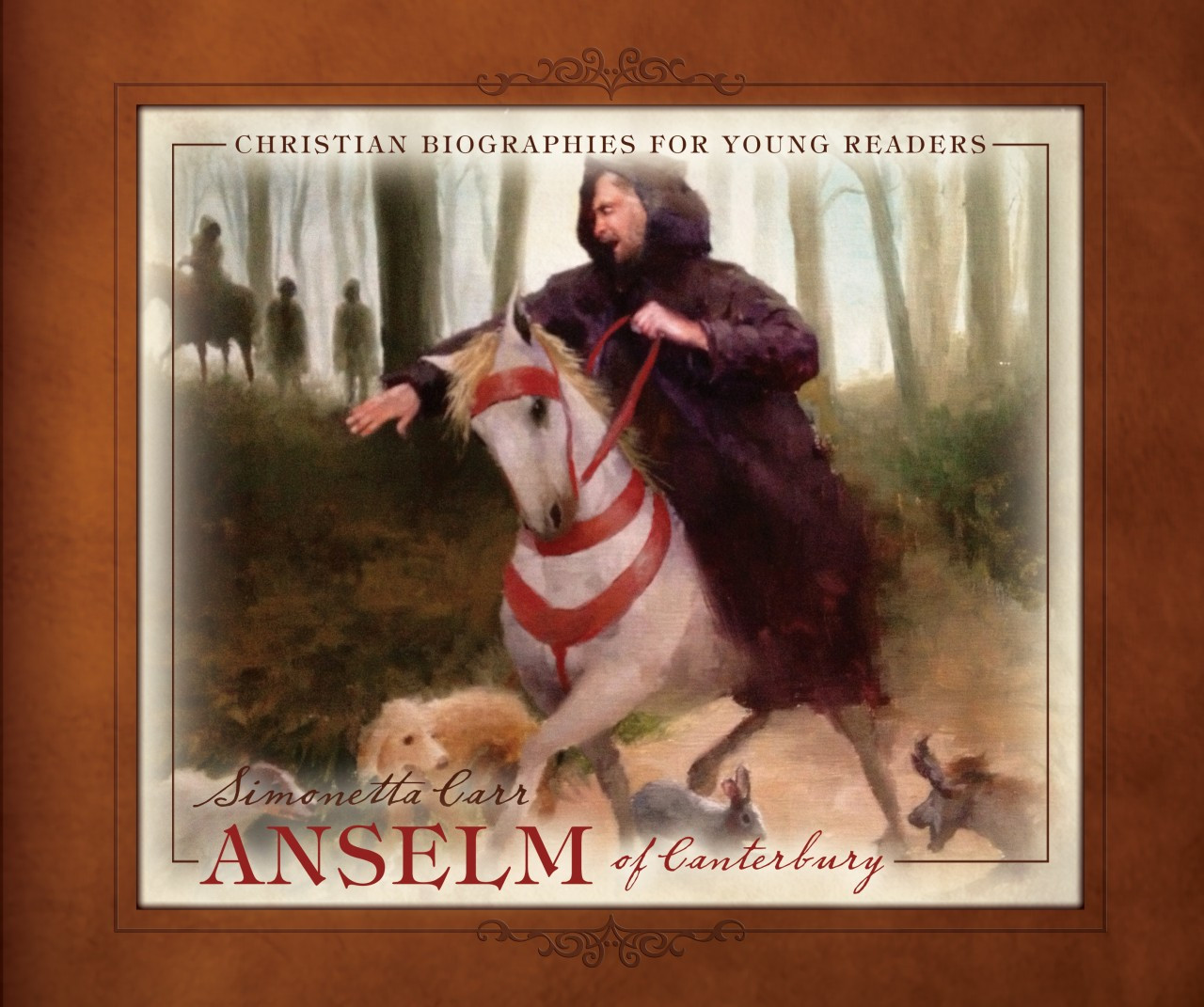
Anselm of Canterbury by Simonetta Carr
This new children’s book written by Simonetta Carr on Anselm
of Canterbury is a fascinating and enriching book combined with stunning
illustrations done by Matt Abraxas. Many
readers will know of Simonetta Carr in her other books in the Christian
Biographies for Young Readers (John Calvin, John Owen, Augustine, Lady Jane
Grey, and Athanasius). She is an astute
writer, investing much in the details of Anselm’s life, both biographically and
theologically. What shines through in
the book is the heart of a man
Early on in the book, we find Anselm debating in his mind
and heart about whether he should pursue the life of a monk. His father was unwilling to give his blessing
for Anselm to join a monastery. Soon
after his father died, Anselm thought very hard about becoming a monk
(14-15). After taking the plunge to
become a monk, Carr writes, “As a monk, Anselm devoted all his heart to the
study of God’s Word, prayer, and his daily duties, which often included editing
books, making sure they were correct” (16).
Anselm’s fervent devotion to study, prayer, and caring for his fellow
man was central to his ministry as a monk, archbishop, and leader in the
church. With the rise of Anselm’s
station in the church, others began to become angry and critical of him, yet
Anselm responded with kindness.
While many people know that Anselm penned his famous work,
Cur Deus Homo (Why God-Man?) about the reason for Christ becoming man and
providing a satisfaction for the weight of the sin of mankind, what was very
illuminating was the occasion of this writing.
Carr writes, “For some time, other monks had been asking him to write an
answer to a question that was puzzling many people:…If God can do anything,
couldn’t He have saved His people some other way” (42)? This shameful death of the Son of God was
unthinkable for some. What was so
amazing here is that these questions were put to the monks by regular people
coming to church each week. Therefore,
Anselm’s clear understanding and detailing of Christ’s coming to the world and
his death was as much a pastoral word of comfort and encouragement as it was a
theological one. In other words, the
heart of theological matters in the church often come from everyday people
dealing with issues of life and reflecting on those issues. Furthermore, the very format of the book in
which Anselm carries on a conversation with another monk named Boso gives the
impression of a dialogue one would have with a friend.
This book was a superb introduction for young students
concerning the life and teachings of Anselm of Canterbury. I learned a lot too as someone not
recognizing the extreme discord that was taking place with both the church and
England at the time. The illustrations
were also very beautiful, taking the world of a medieval monk and his travels
and opening up the scenery that surrounded him.
I recommend this book to anyone wanting to know more about
Anselm and even those wanting to pass along to their children a biography of
the one of the great church fathers.
Thanks to Reformations Heritage Books and Cross Focused
Reviews for the free copy of this book in exchange for review.
Thank you for this very thoughtful review! The occasions that moved some of the famous theologians of the past to formulate what are now basic doctrines of the Christian faith are very interesting and, as you mentioned, usually motivated by pastoral concerns. I think it's important for children to understand that our Christian doctrines were not written in a vacuum by lofty men buried in books, but in the context of everyday life, among daily struggles. Thank you for pointing it out!
ReplyDeleteSpencer,
ReplyDeleteThanks for contributing to the blog tour. The Christian Biographies for Young Readers series is a favorite at our house. ;-) I'm so glad you enjoyed the book.
Shaun Tabatt
Cross Focused Reviews